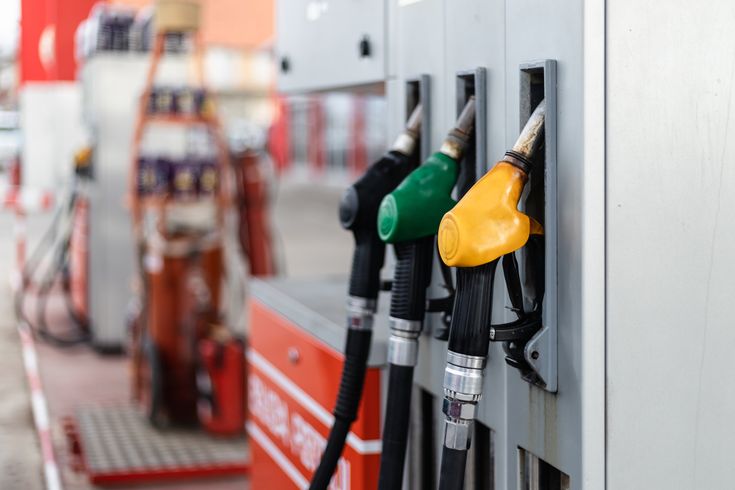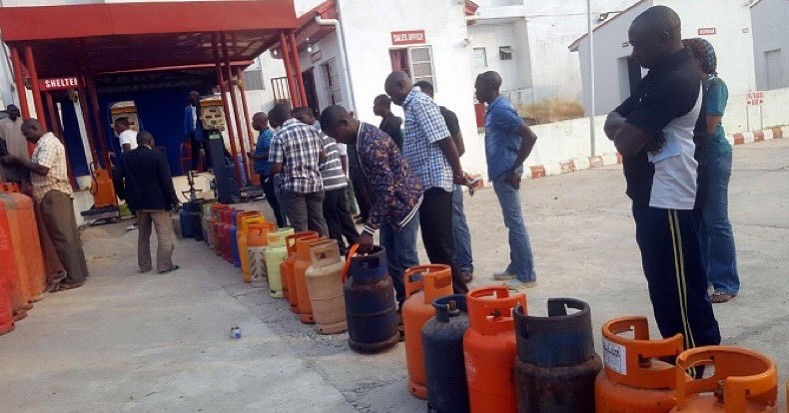Nigeria’s petrol import bill has seen a dramatic reduction in the first quarter of 2025, dropping to ₦1.76 trillion from ₦3.81 trillion recorded in Q1 2024 — a year-on-year decline of over ₦2 trillion. According to the latest foreign trade report by the National Bureau of Statistics (NBS), this marks a significant 54% decrease and signals a major shift in the country’s petroleum trade dynamics.
The drop is largely credited to increased local refining capacity, primarily from the Dangote Petroleum Refinery, which has steadily ramped up production. In fact, petrol imports also declined by 47% from ₦3.3 trillion in Q4 2024, showing a consistent downward trend.
For years, Nigeria has been heavily dependent on imported refined petroleum, but the operational capacity of the Dangote Refinery — now producing at 85% of its 650,000 barrels per day capacity — is changing that narrative.
Five-Year Trend: Petrol Imports at a Turning Point
A review of petrol import data reveals the following pattern:
Q1 2020: ₦732 billion
- Q1 2021: ₦1.29 trillion
- Q1 2022: ₦2.69 trillion
- Q1 2023: ₦2.03 trillion
- Q1 2024: ₦3.81 trillion (peak)
- Q1 2025: ₦1.76 trillion (sharp decline)
This major reversal points to a structural shift in Nigeria’s fuel supply chain, with a greater emphasis on domestic production and energy independence.
ECOWAS and Africa Trade: Regional Influence Still Strong
Despite progress in local refining, Nigeria still imports petrol from ECOWAS countries, amounting to ₦89.18 billion in Q1 2025, representing 44.51% of imports from the region and 11.63% of total African imports. Other fuel-related imports include gas oil (₦23.15 billion) and petroleum bitumen (₦20.58 billion) — further highlighting the sector’s role in Nigeria’s trade profile.
Petrol remained among the top five most imported commodities, alongside:
- Gas oil
- Crude petroleum oils
- Cane sugar for refining
- Durum wheat
- Retail Impact and Market Shift
In early 2025, petrol pump prices in Lagos dropped to as low as ₦860 per litre, showing the effect of increased local supply. However, the Dangote Refinery briefly suspended naira sales in March due to foreign exchange sourcing issues, as it purchases crude oil in USD but receives payments in naira. The Federal Government’s intervention has since resolved the bottleneck, reinforcing Nigeria’s push for fuel self-sufficiency.
Dangote Promises Major Overhaul of Nigeria’s Downstream Sector
During a recent inspection visit by President Bola Ahmed Tinubu to the $20 billion Dangote Refinery in Lekki, Aliko Dangote announced that a major “shakedown” is coming to Nigeria’s downstream sector — not just price reductions, but a complete transformation.
“We’re going on a massive trajectory. This refinery will be just the beginning,” Dangote said. “In five years, it’ll be on the back burner because of what we’re planning next.”
HEED: Follow us on Instagram or any other social media platform and get the most reliable news directly in your favourite app!
He also confirmed plans to list the refinery on the stock exchange, starting with the company’s fertilizer arm in 2025, and emphasized the economic impact of the refinery, including job creation, improved tax revenue, and the end of long fuel queues in Nigeria.
A New Era for Nigeria’s Energy Sector
With the Dangote Refinery now a major player, Nigeria is witnessing a turning point in its oil and gas industry. The reduction in petrol imports, combined with rising local production, shows that the country is moving closer to energy independence — a vision long awaited by millions of Nigerians.
Stay tuned to Naija Blog Daily for more updates on Nigeria’s oil sector, economic news, and local refinery developments.
NaijaBlogDaily# is visible on all social media platforms, and we bring you the latest Nigerian news on politics and economy, entertainment, and celebrity updates, including sports across Nigeria and beyond…
Keep visiting and following up with us on any social media platform you are using to keep you updated 💯
Remember (information brings knowledge and power).
STAY TUNED!!!



